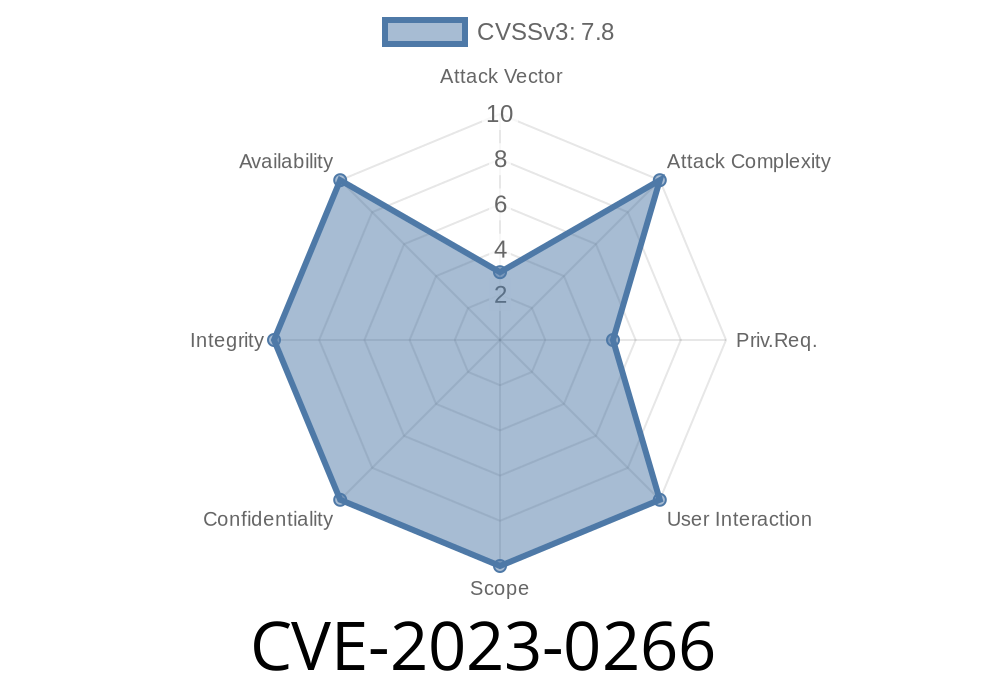The world of Linux security is always changing, with new vulnerabilities being discovered almost every week. One of the most significant flaws in recent Linux kernel history is CVE-2023-0266—a use-after-free vulnerability in the ALSA (Advanced Linux Sound Architecture) PCM (Pulse Code Modulation) package. This bug is especially dangerous because it allows a local user to escalate their privileges to root (ring access). In this post, we’ll break down how the vulnerability works, explore the relevant kernel code, provide you with references and the details on mitigation.
What is CVE-2023-0266?
CVE-2023-0266 is a security issue affecting the Linux kernel sound subsystem, specifically the ALSA PCM code. The vulnerability is related to handling IOCTL operations SNDRV_CTL_IOCTL_ELEM_READ32 and SNDRV_CTL_IOCTL_ELEM_WRITE32 without adequate locking. Because of this, it’s possible for an attacker to trigger a use-after-free bug, which could lead to the ability to run code as root.
Why Does this Matter?
A use-after-free vulnerability means that the program continues to use a chunk of memory after it has been freed. If an attacker can control what’s placed in that memory afterward, they may be able to hijack the control flow of the kernel, allowing them to execute arbitrary code or even crash the system.
In CVE-2023-0266, an attacker who already has normal user-level access to the victim system can use a malicious program to exploit the ALSA PCM API calls and elevate their privileges—all the way to root.
The Vulnerable Code
The core problem is that certain ALSA sound card control IOCTLs (SNDRV_CTL_IOCTL_ELEM_READ32 and SNDRV_CTL_IOCTL_ELEM_WRITE32) are missing proper synchronization (locking) when accessing and freeing certain data structures. Here’s a simplified look at how the bug occurs in the kernel code.
// Vulnerable code example (simplified for clarity)
case SNDRV_CTL_IOCTL_ELEM_WRITE32:
elem = snd_ctl_find_elem(card, &id);
if (!elem)
return -ENOENT;
// ...
// No mutex lock here!
snd_ctl_elem_free(elem);
// ...
// Later code may still reference elem pointer!
Because the function doesn't acquire a proper lock or mutex before freeing the element, it's possible for another thread to interact with the freed memory, triggering a use-after-free condition.
For a full look, check the official Linux kernel commit that fixes the bug:
https://git.kernel.org/pub/scm/linux/kernel/git/torvalds/linux.git/commit/?id=56b88b50565cd8b946a2d00bc83927b7ebb055e
Exploit Overview
This bug can be exploited in practice. Here’s a simplified walkthrough of how an attacker could use this to escalate privileges:
Preparation:
The attacker opens the ALSA control interface (usually /dev/snd/controlC or similar) and repeatedly makes IOCTL calls that create and free control elements.
Triggering the UAF:
The attacker spawns multiple threads or processes to repeatedly call SNDRV_CTL_IOCTL_ELEM_WRITE32, racing the freeing and use of the same memory.
Reusing Freed Memory:
By mapping user-controlled memory into the place of the just-freed kernel object (using heap spraying techniques), the attacker could overwrite function pointers or other critical fields.
Privilege Escalation:
The attacker triggers code execution via a modified pointer, making the kernel run attacker-supplied code with root privileges.
Here’s a conceptual pseudocode snippet (not a real exploit)
// Open ALSA control interface
int fd = open("/dev/snd/controlC", O_RDWR);
// Thread A: allocates and frees control element
for (;;) {
ioctl(fd, SNDRV_CTL_IOCTL_ELEM_WRITE32, &elem_data);
ioctl(fd, SNDRV_CTL_IOCTL_ELEM_REMOVE, &elem_id);
}
// Thread B: tries to reuse the freed element
for (;;) {
ioctl(fd, SNDRV_CTL_IOCTL_ELEM_READ32, &elem_data);
// Try to read or overwrite freed pointer
}
*Warning*: This is for educational purposes only. Running exploits on live systems is illegal without permission.
Who’s Affected?
Any Linux system running kernel versions prior to the fix is vulnerable, including desktops, servers, and even some embedded and IoT systems. It affects mainstream distributions that have not yet incorporated the patch, as well as older kernel LTS branches.
How to Fix?
Upgrade your Linux kernel to a version that includes the fix. The problem is resolved in commit 56b88b50565cd8b946a2d00bc83927b7ebb055e.
Distributions are rolling out patched kernels. For example
- Debian Security Advisory
- Red Hat Security Advisory
- Ubuntu Notices
If you maintain your own kernel, update to at least the version containing the above commit.
References
- CVE-2023-0266 NVD Summary
- Linux Kernel Commit Fix
- ALSA Project
- Exploit-DB (may include PoCs as they are published)
Final Words
CVE-2023-0266 is a reminder that even mature and widely used subsystems, like ALSA sound on Linux, can hide serious privilege escalation flaws. Keeping your systems patched and up-to-date is the best defense. If you’re an administrator, schedule those kernel updates without delay! If you want to learn more or see more technical discussion, check out the oss-security mailing list post and follow the upstream commit logs.
Timeline
Published on: 01/30/2023 14:15:00 UTC
Last modified on: 02/06/2023 21:47:00 UTC
